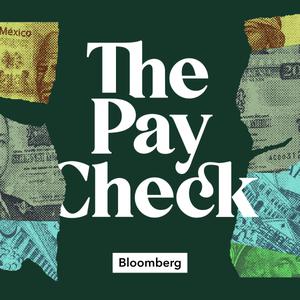
The Pay Check
Bloomberg
The pandemic created a global economic crisis that economists and experts expected would lead to greater wealth inequality than ever before. Host Rebecca Greenfield along with a team of Bloomberg News reporters heads to seven countries around the world to find out what this world changing event has wrought. What they found was surprising.
- 1 minuteListen Now: Beak Capitalism from Odd Lots
In this limited series, Odd Lots explains some of the thorniest issues facing the US economy through the medium of … chicken. Chicken occupies a unique position in the US diet, but issues facing the poultry industry illustrate wider points about the development of the US economy and the decisions being made about how it's structured and who benefits from it. So why has the chicken industry evolved in the way that it has? What’s been driving the price increases in eggs and meat? And what does it all say about things like inflation, the labor market and the nature of American capitalism?
Check out Beak Capitalism on Odd Lots wherever you get your podcasts.
See omnystudio.com/listener for privacy information.
24 November 2024, 5:00 pm - 30 minutes 5 secondsSpain: A Time-Tested Model for Economic Security
For the last seven weeks, we’ve gone around the world to see how the pandemic led to more or less economic equality. There were some pleasant surprises and some devastating stories. In the season finale, we ask: what about the next crisis? How do we ensure more stability and security when something earth shattering inevitably comes along? That led reporter Jeannette Neumann to a small town in Spain’s Basque region, which boasts a strong track record of security and stability, thanks to a crisis-tested economic model.
See omnystudio.com/listener for privacy information.
30 June 2022, 8:00 am - 23 minutes 41 secondsSingapore: Who Gets to Be Crazy Rich?
Singapore's carefully controlled housing market has been a key factor in its economic success over the last 60 years. But when the pandemic ushered in the city's worst-ever recession, property prices continued to rise, leading a younger generation to worry if it can match the social mobility enjoyed by their parents. In this episode of The Pay Check, we examine the grand housing experiment that helped Singapore to reach one of the highest rates of homeownership in the world, and recent developments that have left ordinary Singaporeans asking whether the system is still working for them. Reporter Faris Mokhtar meets the man who helped create the city's housing boom, as well as the young professionals grappling with the market today.
See omnystudio.com/listener for privacy information.
22 June 2022, 8:00 pm - 22 minutes 13 secondsMexico: Choosing the Economy Over Life
Mexico’s handling of the pandemic has been largely driven by its president, Andrés Manuel López Obrador, and his desire to keep the economy open. That’s meant few restrictions and a “return to normal” even before vaccines. The approach hasn’t come without costs, particularly to the country’s health care system. During the first year of the pandemic, maternal mortality rates spiked 60%. In this episode of The Pay Check, Equality reporter Kelsey Butler travels to a rural part of Mexico’s Yucatan Peninsula to get to the bottom of how that happened — and find out how to fix it.
See omnystudio.com/listener for privacy information.
16 June 2022, 8:00 am - 25 minutes 53 secondsHawaii: When a Billionaire Buys Your Hometown
One of the defining trends of the pandemic has been the creation of extreme wealth at the very top. This week on The Pay Check we take a look at the booming fortunes of the world’s growing billionaire class through one man: Larry Ellison. (Net worth, give or take $90 billion.) Ellison co-founded the tech company Oracle but he may be better known for how he spends his money: yachts, mansions, a tennis tournament. In 2012, he bought an entire Hawaiian island, Lanai — home to 3,000 people. For a decade its residents have anxiously watched Ellison slowly kill their small businesses and push up rents from afar. Then, during the pandemic, Ellison moved there. Bloomberg Wealth reporter Sophie Alexander traveled down to the island to see how the billionaire’s presence has accelerated his plans, and how locals whose families have lived there for generations are managing.
See omnystudio.com/listener for privacy information.
9 June 2022, 2:30 am - 20 minutes 20 secondsIndia: Why Did Working Women Disappear?
Even before the pandemic, the proportion of women in India's workforce was falling. Covid made it so much worse. This episode of The Pay Check looks at where India's working women went during the pandemic, why they haven't come back to the workforce, and why that's a blow to the country's broader economic ambitions. Archana Chaudhary and Ronojoy Mazumdar travel to a girls school on the Ganges with one primary mission: Keeping girls in school, often at odds with families that would prefer to get them married.
See omnystudio.com/listener for privacy information.
2 June 2022, 12:00 am - 21 minutes 40 secondsKenya: The Lost Girls
An increase in teen pregnancies in Kenya is part of a shadow pandemic that ripped through developing nations during Covid, setting women’s progress back generations. In this episode of The Pay Check, journalist Jill Filipovic visits a dance school in Nairobi, Kenya that’s fighting to help girls manage their lives and re-enroll in school.
See omnystudio.com/listener for privacy information.
26 May 2022, 8:00 am - 28 minutes 9 secondsU.S.: Where Cash Made All the Difference
When the Covid-19 pandemic started, many people expected inequality to get worse in the U.S. But at least for the bottom 50% of Americans, something surprising happened: Many of the least advantaged boosted their wealth. To start to understand why, we look to cash payments. No-strings-attached money went to people in need in the form of federal stimulus, the child tax credit — and local guaranteed income programs. As pandemic rescue aid wanes, is there a path to making monthly cash payments permanent? Reporter Susan Berfield looks to Jackson, Mississippi, to find out.
See omnystudio.com/listener for privacy information.
19 May 2022, 8:00 am - 35 minutes 59 secondsBrazil: The Cautionary Tale
This season on the Pay Check, we're going to seven different countries to see how a global pandemic shifted the balance between the richest and the poorest people -- and affected everyone in between. In this first episode, Host Rebecca Greenfield and reporter Ben Steverman discuss how the effects of the pandemic on our health, wealth, safety and livelihood varied widely based on where in the world we were. Then Brazil-based reporter Shannon Sims takes us to the country's capital, Brasilia -- One of the places with the sharpest inequality in the world. Through a day in the life of a single mother who added rideshare driver to her list of side jobs during the pandemic, she explores the ways the pandemic snapped the already fragile safety nets women in this vulnerable group had strung together to stay afloat.
See omnystudio.com/listener for privacy information.
12 May 2022, 8:00 am - 2 minutes 40 secondsComing Soon: The Pay Check Season Four
The pandemic created a global economic crisis that economists and experts expected would lead to greater wealth inequality than ever before. Host Rebecca Greenfield along with a team of Bloomberg News reporters heads to seven countries around the world to find out what this world changing event has wrought. What they found was surprising.
See omnystudio.com/listener for privacy information.
5 May 2022, 8:00 am - 25 minutes 53 secondsIntroducing: White Picket Fence
This special episode of The Pay Check features "What Could Have Been", the latest episode of White Picket Fence from Wonder Media Network.
How did the U.S. become a society that treats caregiving as a private family responsibility rather than a public good? In this episode, Julie explores the longstanding and continued role racism has played in preventing investments in public goods that would benefit everyone, including caregiving. We’ll also do a deep dive into the 1970s when the U.S. nearly invested in universal childcare — and how fear was deployed to block it.
Check out all the episodes from the new season of White Picket Fence wherever you get your podcasts.
See omnystudio.com/listener for privacy information.
1 December 2021, 9:00 am - More Episodes? Get the App
Your feedback is valuable to us. Should you encounter any bugs, glitches, lack of functionality or other problems, please email us on [email protected] or join Moon.FM Telegram Group where you can talk directly to the dev team who are happy to answer any queries.
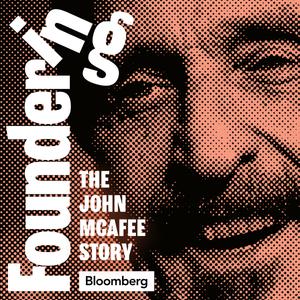 Foundering
Foundering
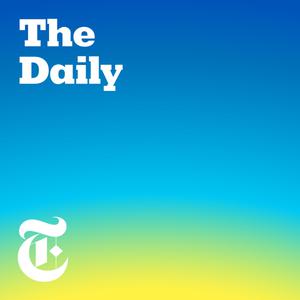 The Daily
The Daily
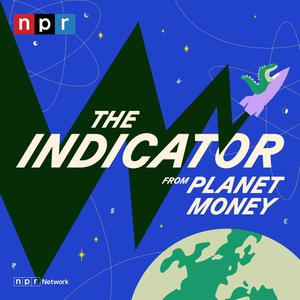 The Indicator from Planet Money
The Indicator from Planet Money
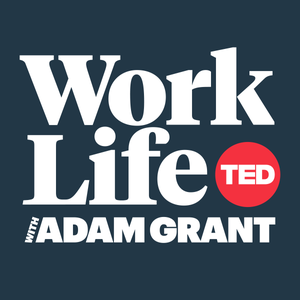 WorkLife with Adam Grant
WorkLife with Adam Grant
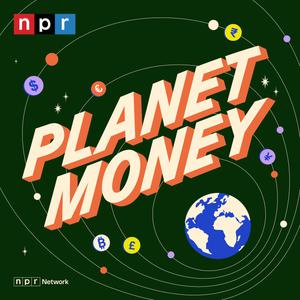 Planet Money
Planet Money
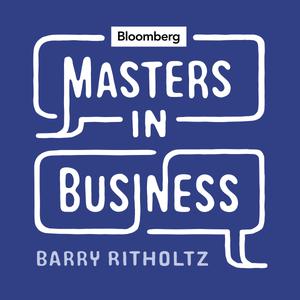 Masters in Business
Masters in Business